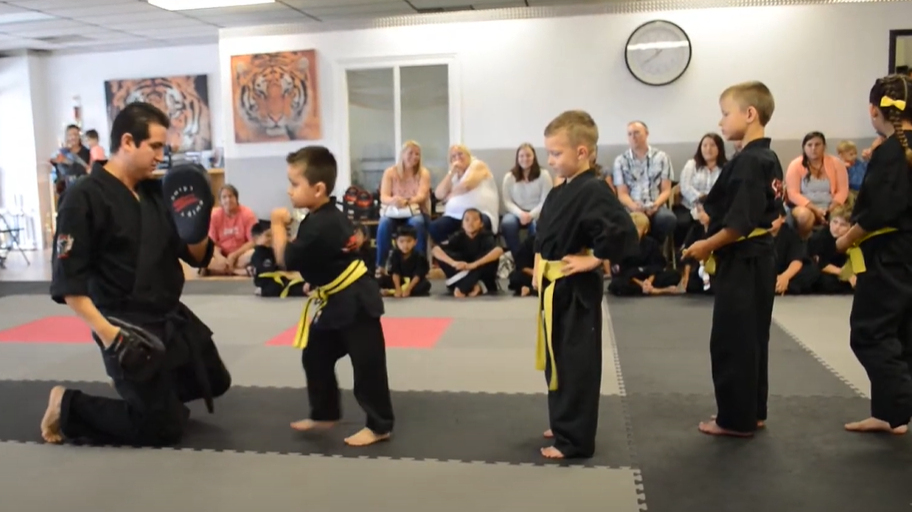As a parent, you want the best for your children. You want them to grow up to be confident, disciplined, and capable individuals. One way to help them achieve these qualities is through the practice of martial arts. Martial arts is not just about learning self-defense; it offers a plethora of benefits that contribute to a child’s overall development. In this article, we will explore the various advantages of martial arts for children and how it can positively impact their lives.

Focus on Individual Growth
In the world of martial arts, there are no benchwarmers. Each child is encouraged to focus on their own personal growth and improvement. Unlike team sports, where the pressure to perform for the team can sometimes be overwhelming, martial arts allows children to progress at their own pace. The routines are broken down into patterns, and each child works on achieving their own specific goals.
This emphasis on individual growth eliminates the stress and anxiety some children may experience in competitive team environments. It allows them to set and achieve personal targets, boosting their self-confidence and sense of accomplishment.
Self-Control and Good Decision-Making Skills
One of the fundamental aspects of martial arts is self-control. Children learn how to pay attention, focus on themselves, and behave accordingly to complete tasks effectively. These skills translate into other aspects of their lives, such as school and home environments.
Through regular practice, children develop the ability to make better decisions, control their impulses, and manage their emotions. This self-discipline lays a strong foundation for their future, promoting responsibility and maturity.
Mind-Body-Spirit Connection
In today’s technology-driven world, children are exposed to excessive screen time, leading to various issues like hyperarousal and compulsive use. Martial arts offer a much-needed balance by focusing on the mind-body-spirit connection.
Martial arts training encourages mental focus, physical activity, and spiritual well-being. Children learn to channel their energy positively and develop a deeper understanding of themselves and their surroundings. This holistic approach contributes to a more balanced and centered child.
Teamwork and Social Interactions
While martial arts often emphasize individual growth, it also fosters teamwork and social interactions. In a class setting, children practice with partners and collaborate with others during exercises and drills. They learn the value of cooperation and develop essential social skills.
Martial arts classes create a supportive environment where children learn to communicate effectively, respect others, and work together towards shared goals. These valuable lessons extend beyond the dojo and enrich their interactions with peers and adults alike.

Conflict Resolution
In any social setting, conflicts are bound to arise. Martial arts equip children with the tools they need to handle conflicts effectively and peacefully. Through training, they develop patience, empathy, and better communication skills, which are vital for resolving conflicts in a non-violent manner.
Coordination and Motor Skills
For young children, developing coordination and motor skills is crucial for their overall growth and development. Martial arts training involves various movements and techniques that challenge and enhance a child’s physical abilities.
As they practice kicks, punches, and blocks, children improve their hand-eye coordination, balance, and overall motor skills. These benefits extend beyond martial arts and positively impact their performance in other physical activities.
For Children on the Spectrum
If your child is on the autism spectrum, martial arts can be especially beneficial. A systematic review published in the Archives of Budo found that practicing martial arts had a medium to high positive effect on various symptoms of autism spectrum disorder.
Martial arts training can help improve social interaction and communication skills, self-regulation, memory, cognitive function, and postural control in children on the spectrum. The structured and disciplined nature of martial arts classes can provide a supportive environment for children with special needs to thrive.
Balance and Posture
As children grow, it is essential to instill good posture habits and balance from an early age. Martial arts training emphasizes the significance of proper alignment and posture to perform techniques effectively and avoid injuries.
For children, especially those in their early years, this skill set is critical for their physical development. Poor posture can lead to various health issues, including improper breathing, cramped organs, jaw pain, and intestinal problems. Martial arts not only helps correct posture but also promotes a healthier lifestyle.

Conclusion
Enrolling your child in martial arts classes can be one of the best decisions you make for their personal growth and development. The practice of martial arts offers a wide range of benefits, from improved self-discipline and focus to enhanced social skills and physical coordination. Moreover, it provides children with a positive outlet for their energy and helps them build resilience and self-confidence.
As a parent, you can be confident that martial arts training will contribute significantly to your child’s overall well-being and prepare them for life’s challenges. So why wait? Take the first step and witness the transformation in your child as they embark on this exciting journey of self-discovery and empowerment through martial arts.
[gravityform id=”1″ title=”true” description=”true”]

